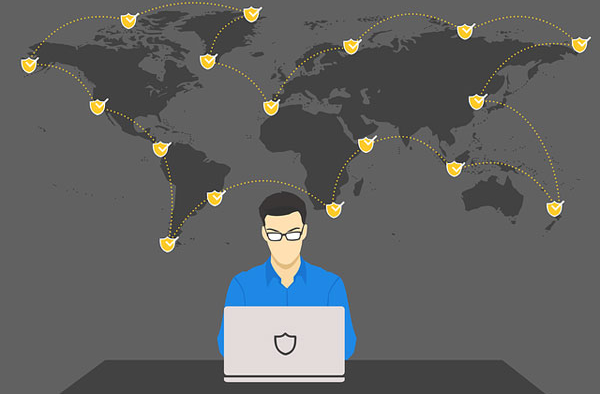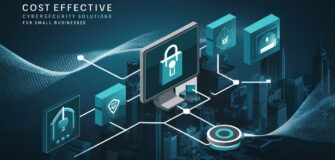Top 7 PC Security Tips You Must Know About
Share

Technology has become an increasingly integral part of our lives nowadays, as a result, more and more criminals have decided to target them. Such individuals have transitioned from stealing wallets to stealing the password to your online banking account. Ensuring your PC and other such devices are secure is very important. Below you will find five effective ways that you can do that.
- Use a Password Manager
Once a cybercriminal is able to obtain your login details for a certain online account, the next thing they will do is use that same information for other sites. While it can be very frustrating, a cybercriminal that has gained access to an online account of yours, say, your social media account, doesn’t necessarily mean they can obtain sensitive information on you.
However, if that individual was able to use the same login details to gain access to an ecommerce site you use or your actual online banking account, then they could very easily empty you out.
The best approach to adopt, in every situation is to use separate login details for every account that you make. However, this can be very difficult, especially when you consider the number of online accounts you might have. Which brings us to the password manager tool.
With a password manager tool, you can very easily and very quickly create strong, unique login credentials for any account you intend to sign up to. Typically, you will need to add a plugin to your browser that will allow the password manager tool, to automatically fill in your login details.
With all of that in place, the only password you will need to remember, is the one to your password manager tool, as it will contain and hold all your other password details.
- Enable Multi or Two-factor Authentication
If your password was to be compromised, having an additional layer of security would ensure that no one could access your account. Such additional layers could be anything from a code sent to your mobile phone, to a passkey sent to an app. This way, cybercriminals cannot access your accounts without your mobile device.
If you ever sign up to a service that offers two or multi-factor authentication, then it’s always best practice that you enable it. It might mean, having to do a few extra steps to log into your account, but in the long run, it will be well worth it.
- Be Mindful of Links
Links contained in emails is one of the more common methods hackers use to trick unsuspecting users into giving up sensitive information about themselves. This may manifest itself in the form of a password recovery email, banking statement or something similar.
When the user clicks on one of the links contained in these emails, they are immediately sent to a fake website that looks almost identical to its authentic counterpart. On the site they will be asked to put in their login details. Once the hacker is able to obtain this specific information, they can now use that information to gain access to their account.
So definitely be mindful of what you click on in emails. If you’re not too sure about a specific link, then don’t click on it. The best approach is always to visit the site directly, rather than through a link in an email.
- Watch Out for Phishing Emails
In the year 2021 statistics put the number of phishing attacks at 1 every 21 seconds. With around 92% of them being sent via email. These phishing emails are of course fake, but with time, hackers have made increasing efforts in making them look legitimate. The objective of these emails is to encourage the user to click through to a link, which would inevitably fool you into logging into a fake website, resulting in them stealing your sensitive details (as previously discussed).
However, what sets phishing emails apart is that, at times, they may also include attachments, which oftentimes have malware in them, which when copied to your system, will allow the hacker backdoor access into your computer.
So be sure to double-check everything, before you go clicking on anything in your email. It can be quite difficult at times to determine whether or not an email is real, as such emails can sometimes be sent from people that you actually know.
If you were not expecting them to send you anything at that time, then you may want to double-check. Give them a call or send them an email, just to make sure it was actually them that sent the email. It’s always better to be safe than sorry, because once a cybercriminal gains access to your sensitive data, there is no going back. They could do just about anything with your info. So keep that in mind.
- Use an Antivirus and Firewall Tool
One of the most popular ways for an end user to secure their PC is to use an antivirus program. These programs or tools work by blocking and removing malicious files from your system, effectively preventing them from infecting your device(s). It’s always best to go with the better-known antivirus tools out there, as they tend to offer the best protection.
Firewalls on the other hand, work in a somewhat similar fashion, in that they filter all the traffic that goes in and out of your system. Your Windows based system has its own built-in firewall and antivirus tool called Microsoft Defender, which you can go with, but there are always better options, if you have the cash for it.
- Keep your System Up- to-date
Your Windows operating system and everything installed on it, should always be kept up to date. If you have security software installed on your system (which you should), then you should ensure it is always up to date. Older systems, older iterations of an app or operating system, in most instances have been victims of more attacks, which means, hackers will be aware of certain known vulnerabilities. By updating all of your software, you can prevent these hackers from taking advantage of these exploits.
For this reason, it’s important that keeping everything up to date becomes a priority of yours.
- VPNS
Lastly, VPNs have proven to be one of the more effective ways of ensuring the protection of your device while using a public Wi-Fi network. VPNs or Virtual Private Networks work by encrypting your internet traffic, by rerouting everything through a server, with the one drawback, that it can slow your connection down, somewhat.
When you decide to log into a public Wi-Fi network at your local restaurant, there is no way for you to know how secure that connection really is. The unfortunate reality is that cybercriminals like to target these networks, as many of the people on them tend to be unsuspecting. I say, don’t be one of them, get a VPN now.









